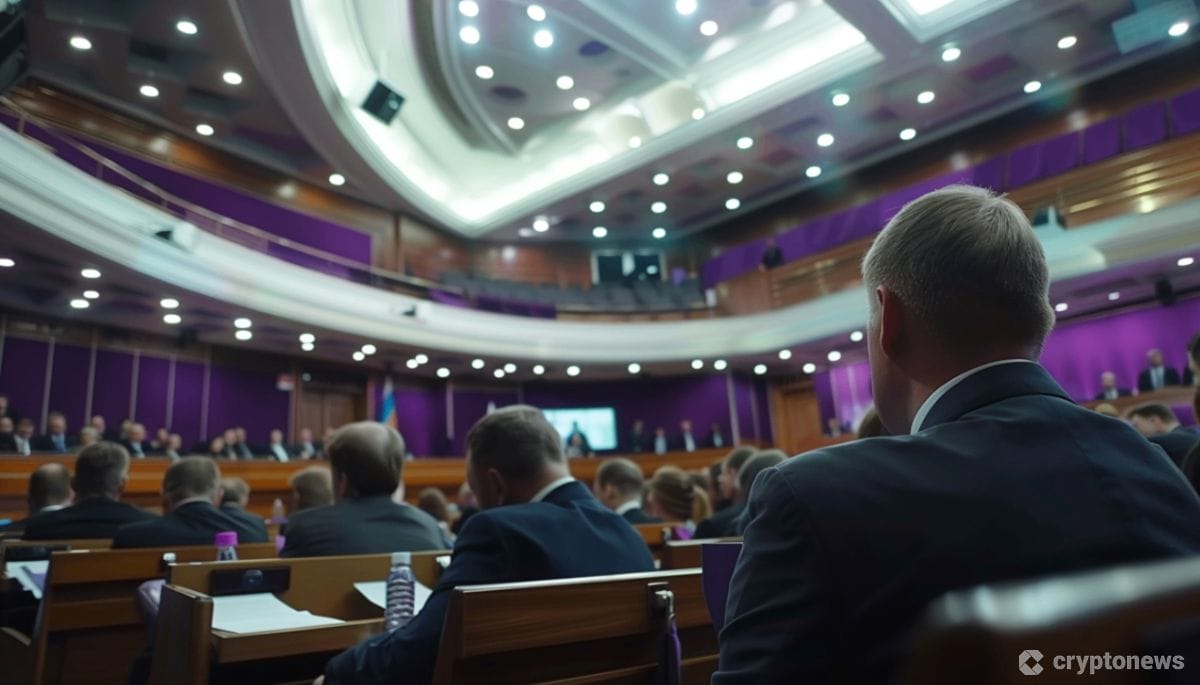Russia is considering legalizing industrial crypto mining by the end of the week, according to reports from media outlets in the nation. The State Duma has passed a third reading of a draft law that would require crypto miners in Russia to comply with anti-money laundering legislation. This law is now pending ratification by the upper parliamentary house and signing into law by the President’s office. If passed, miners will need to report suspicious crypto transactions to Rosfinmonitoring, the nation’s anti-money laundering agency. Additionally, there is a separate bill in progress that aims to legalize digital currency mining activities in Russia from September 1, 2024.
Lawmakers in the Russian State Duma are working on finalizing the legislation that will regulate the crypto sector. One of the bill’s authors, lawmaker Anton Gorelkin, stated that the draft law will be fully adopted before the end of the Duma’s spring session in early August. The legislation is expected to legalize and regulate cryptocurrency mining activities in the country, providing clarity and legitimacy to the industry. Another report from a media outlet quoted a source close to the State Duma, suggesting that the bill could be adopted in full by the end of the week, signaling a swift progression towards regulating crypto mining in the country.
Anatoly Aksakov, the Chairman of the State Duma’s Committee on the Financial Markets, confirmed that the long-awaited legislation is prepared for a vote following over two years of deliberations. The bills under consideration may also include regulations for crypto exchanges and Russian firms using crypto for cross-border trade payments. President Vladimir Putin has urged lawmakers to expedite the regulation of crypto mining, despite previous proposals by the Central Bank to ban mining activities. The newfound legislative momentum highlights the importance of regulating the crypto sector to ensure compliance with AML regulations and tax obligations.
The fate of private miners remains uncertain, with proposals ranging from banning non-industrial mining to prosecuting private miners. The government is exploring different approaches, including allowing miners to operate from home within specified energy consumption limits. The focus appears to be on industrial miners who stand to benefit from official recognition as legitimate business operators, opening up opportunities for domestic investments. Representatives from the mining industry and active cryptocurrency users have called for the sector’s regulation at the legislative level, signaling a shift towards a more structured and regulated mining environment in Russia.
In conclusion, Russia’s potential legalization of industrial crypto mining signifies a significant step towards regulating and legitimizing the cryptocurrency sector in the country. With the impending adoption of legislation to oversee crypto mining activities, industrial miners stand to gain official recognition as legitimate business operators, paving the way for domestic investments in the rapidly growing industry. The government’s efforts to establish clear regulations for the crypto sector indicate a willingness to embrace digital assets while ensuring compliance with anti-money laundering laws and tax obligations. As the legislative process moves forward, it remains to be seen how private miners will be impacted and whether regulations will strike a balance between fostering innovation and addressing potential risks associated with crypto mining.











